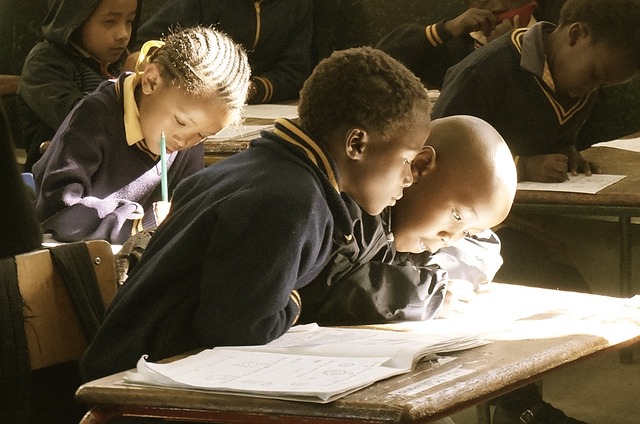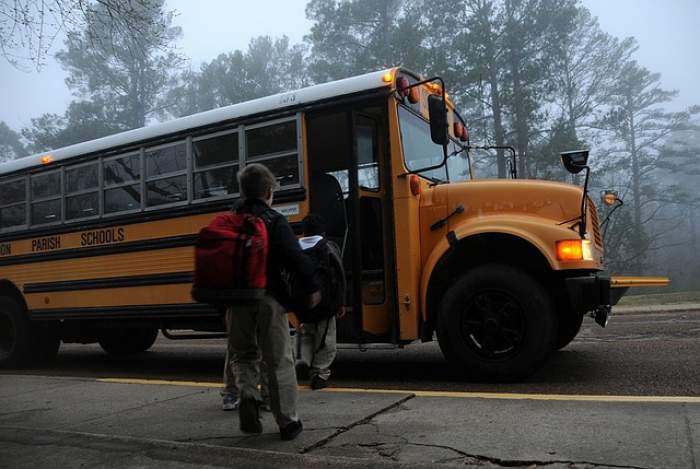Editor’s Note:
In this two-part series, the writer is trying to analyze different education options for Muslim families living in Western countries. In the previous part, she talked about the pros and cons of homeschooling and Islamic schools. In this part, she explores public and private schools.
Public School
Pros: An obvious advantage of public school is that it is tuition-free. Public schools invest seriously in their teachers’ professional development, offering them courses and training that require them to keep growing and learning as educators. Furthermore, public schools are required to accommodate students with special needs.
Whereas Islamic schools are often not equipped to deal with special-needs students — and homeschooling parents may not have the necessary skills or training to fully assist their child — public schools in the US and many countries are required to try to identify, accommodate, and support students with special needs.
In addition, public schools will expose students to others of diverse backgrounds, abilities, races, religions, lifestyles, and social classes. Learning to cooperate with others in a multicultural society is important.
Cons: Because they accept all students, public schools must instruct children at various levels and abilities simultaneously. Therefore, lessons are planned to reach the “middle ground,” and those students who are advanced or struggling might suffer from boredom or inability to keep up.
Class sizes in public schools tend to be large, and the quality of the resources, facilities, faculty, and supplies tends to vary greatly, depending on how affluent the school district is. Some public schools in the U.S. are so underfunded that students sit in dilapidated desks while reading battered, outdated textbooks, while other schools boast the latest technology and state-of-the-art facilities. This disparity means that the public school experience will vary greatly from state to state and even neighborhood to neighborhood.
Another point to consider is that some public schools in the U.S. and the U.K. have begun to introduce topics that challenge traditional Islamic beliefs. Same-sex marriage, for instance, has been introduced and normalized in some classrooms, with young children receiving books about families that include households with “two mommies” or “two daddies.”
Many Muslims would prefer to teach their children about this subject from an Islamic perspective and would like to address the topic when children are older and more able to understand nuances.

Private secular schools
Pros: Private schools in the U.S. usually have the advantages of small class sizes, excellent facilities and programs, a high caliber of student, well-trained teachers, and a rigorous academic program that prepares students for top-notch higher education. Private schools can be an excellent choice for a student who is academically advanced or gifted in an area such as art or music, as they often offer a wide range of courses to challenge and support capable students.
Private schools often put great emphasis on preparing students for university, and sometimes the prestige of attending top-notch schools can open doors in college and the professional world.
Cons: Private schools are usually quite expensive. They tend to have a disproportionate amount of wealthy students, giving many school environments an unrealistic aura of privilege, safety, and luxury. Just like children at poorer schools, though, students at elite schools are not immune from depression, drug use, violence, and promiscuity.
Added to this can be an overall attitude of entitlement and arrogance. Muslim families who wish to instill the Islamic values of humbleness, compassion, wholesomeness, and modesty in their children should make sure to model these behaviors at home and have many open discussions with their children about the pros and cons of the privileged lifestyle they see around them.
Private religious schools
Pros: A private religious school will obviously have a religion at its core that determines the school’s curriculum, mission, and overall environment. Like private secular schools, private religious schools often cost a good deal of money but also promise superior facilities, teachers, and academic instruction. Many religious schools espouse values that are compatible with Islam, such as community service, honesty, spirituality, and respect. Often these schools require students to wear a uniform, which eliminates some competition and drama over clothing.

Cons: Being exposed daily to a different religion might confuse a young Muslim who is still forming his own identity. Although not all schools require students to receive religious instruction, usually religious school students do take mandatory faith-based classes as part of the curriculum.
The pressure to be like everyone else might weigh heavily on a young Muslim. For instance, my friend sent her Muslim daughter to a local Catholic school with an excellent academic reputation. Although the girl was not required to participate in Mass, she did have to attend it regularly, with her classmates. After a while, she felt awkward being the only student who did not receive Communion (the bread and wine that Catholics believe are the body and blood of Jesus), so she started joining in.
Clearly a Muslim should not participate in a rite that goes against core Islamic principles, so children who attend a non-Muslim religious school should be extremely solid in their beliefs and strong enough to withstand peer pressure.
Clearly it is not easy to decide what is best for a child’s education, with so many factors to consider. To add to the complication, family members, friends, and others often chime in with their opinions. Some people are quick to condemn what they do not understand simply because it is different. Others lack any expertise in the area of education, but still claim to know what is best.
It is crucial, therefore, that each family researches their options and makes the choice that works best for them and their children, regardless of what others say. I have seen young Muslims thriving in each of the educational scenarios above, and the common thread is always loving parents who are committed to their children’s academic success, well-being, and Islamic character.
First published: October 2018
